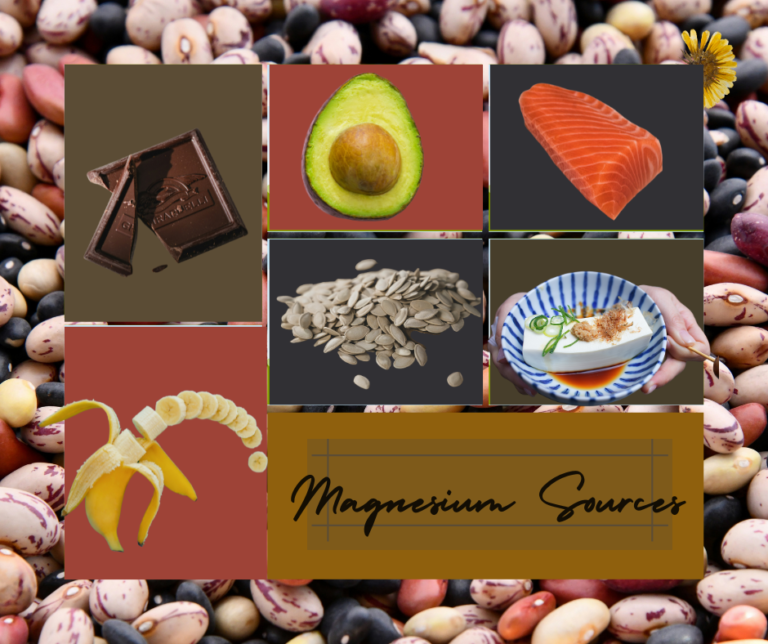
If you’re pushing the limits with your workouts, you know the toll it takes on your muscles. Whether you’re a seasoned gym-goer or a weekend warrior, muscle recovery is crucial for your continued progress and overall health. As it turns out, magnesium plays a pivotal role in this recovery process. But with various magnesium supplements crowding the shelves, it’s vital to understand which type is best for your fitness regime and muscle health. In this deep dive, we’ll explore the different types of magnesium and how they aid in muscle recovery.
Importance of Muscle Recovery in Fitness and Overall Health
Muscle recovery is not just about alleviating the aches and pain—it’s about giving your body the respite it needs to repair and become stronger. During this phase, crucial processes like tissue repair, strength building, and adaptation to training stimuli occur. Thus, optimizing muscle recovery is not just a luxury; it’s an essential part of any serious fitness plan.
Types of Magnesium
Magnesium is involved in over 300 biochemical reactions in the body, many of which contribute to proper muscle function and recovery. Let’s break down the different types of magnesium and see how they fit into your muscle recovery plan.
Magnesium Citrate
Magnesium citrate is known for its bioavailability, which refers to how well it’s absorbed by the body. This type is often used to treat constipation, but its absorption capabilities make it a viable option for addressing muscle soreness and recovery.
Magnesium Glycinate
Often recommended for its calming effects, magnesium glycinate is preferred for those who need muscle relaxation, especially post-exercise. It is also known for causing less digestive discomfort than other forms.
Magnesium Malate
Highly praised in the fitness community, magnesium malate is hailed for its ability to alleviate muscle fatigue and improve energy production, making it a champion for endurance and recovery.
Magnesium Threonate
This form is noted for its ability to penetrate the brain barrier. While it may have less direct influence on muscle recovery, its impact on cognitive function and reduction in neurological pain can indirectly benefit muscle health.
Magnesium Oxide
Though not as readily absorbed and with lower bioavailability, magnesium oxide is often used for medicinal purposes. It can relieve muscle cramps and migraines which can be advantageous for overall recovery.
Benefits of Magnesium for Muscle Recovery
The correlation between magnesium and muscle recovery is not to be underestimated. Here’s how incorporating magnesium in your diet can play a key role:
Relaxation and Reduction of Muscle Tension
Supplementing with magnesium post-exercise can assist in diminishing muscle tension and warding off cramps, thanks to its role as a natural muscle relaxant.
Improved Sleep Quality
Magnesium regulates neurotransmitters, which in turn affects the quality of sleep—a crucial aspect of muscle repair.
Enhanced Exercise Performance
Magnesium is essential for energy production, which directly translates to better performance and more effective workouts.
Decreased Muscle Soreness and Inflammation
By reducing systemic inflammation and working on the cellular level, magnesium can help to cut down on recovery time after intense exercise.
Choosing the Right Magnesium Supplement
When selecting a magnesium supplement:
- Bioavailability is key; choose a form that the body absorbs well.
- Dosage matters; more is not always better, especially when starting a new supplement.
- The form of magnesium should align with your specific health needs.
Moreover, it’s always best to discuss with a healthcare professional before introducing a new supplement to your routine.
Best Natural Food Sources for Each Type of Magnesium
While supplements can be helpful, natural sources of magnesium are also beneficial. Foods like almonds, spinach, and black beans are packed with magnesium and can easily be integrated into a healthy diet.
In addition to almonds, spinach, and black beans, there are several other natural food sources rich in magnesium. Here are a few:
- Avocados: This superfood is not just packed with healthy fats but also contains a good amount of magnesium.
- Bananas: Known for their high potassium content, bananas also provide a decent amount of magnesium.
- Dark Chocolate: A delicious treat that is rich in magnesium. Opt for a high percentage of cocoa for maximum benefits.
- Pumpkin Seeds: Besides being high in antioxidants and a rich source of healthy fats, pumpkin seeds provide a substantial amount of magnesium.
- Fatty Fish: Fish, especially mackerel, salmon, and halibut, are great natural sources of magnesium.
- Legumes: Lentils, chickpeas, peas, and soybeans are rich sources of magnesium.
- Whole Grains: Grains like wheat, oats, and barley, as well as quinoa and brown rice, are good sources of magnesium.
- Tofu: Often a staple in vegetarian diets, tofu is also a good source of magnesium.
Remember, a balanced diet rich in diverse nutrients is key to overall health. It’s always best to incorporate a variety of these foods in your daily diet to ensure you are getting sufficient magnesium naturally.
Tips for Maximizing Muscle Recovery with Magnesium
To fully tap into the muscle recovery benefits of magnesium, consider:
- Timing Your Dosage: Post-workout or before bedtime might be ideal times for magnesium intake to enhance recovery and improve sleep.
- Complementing with Lifestyle Practices: Stay hydrated, follow a balanced diet, and get adequate rest along with magnesium supplementation.
Conclusion
By understanding the different types of magnesium and their unique benefits, you can target your supplementation to enhance your muscle recovery. Remember, the right type of magnesium for you hinges upon your individual health goals and fitness demands. By combining smart supplementation with natural food sources and healthy lifestyle habits, you’re setting the stage for optimal recovery and improved performance.
Stay resilient and recover smarter, giving your muscles what they deserve—a chance to bounce back stronger than ever, with a little help from magnesium.
Keywords: Magnesium for Muscle Recovery, Magnesium Supplement Benefits
